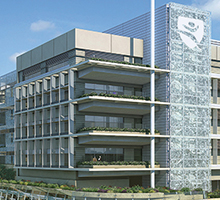What Is Bariatric Surgery?
Bariatric (weight-loss) surgery is the only option today that effectively treats morbid obesity in people for whom more conservative measures such as diet, exercise and medication have failed. Bariatric Surgery also contributes significantly to resolving co-morbidities and improving quality of life. It has been demonstrated that after a successful bariatric surgery, patients lower their blood sugar and blood pressure, reduce or eliminate sleep apnea, decrease the workload of the heart, and lower cholesterol levels.
There are several approaches to Bariatric Surgery, but all procedures are either malabsorptive, restrictive or a combination of the two.
Malabsorptive procedures change the way your digestive system works. Food is re-routed past a large portion of the stomach and the small intestine that absorbs some calories and nutrients. These procedures are referred to as “gastric bypass” procedures.
Restrictive procedures severely reduce the size of the stomach to hold less food, but the rest of the digestive functions remain intact.
Our bariatric surgery team has performed laparoscopic bariatric surgery since 2004. The bariatric surgeon inserts specialized miniature instruments into the patient through small incisions made in the abdominal wall. Compared to large incision surgery, the laparoscopic technique:
- Promotes faster healing and recovery
- Decreases pain
- Decreases the chance of infection
The procedure takes about 1 to 3 hours and patients generally stay in the hospital for 2 to 4 days after the operation. Most patients can return to school or work in 2-6 weeks.
Currently, we perform two laparoscopic bariatric surgery procedures in adolescents:
Laparoscopic Sleeve Gastrectomy
Sleeve gastrectomy is a restrictive form of weight loss surgery where about 2/3 of the stomach is removed. The stomach is resized and ends up looking like a sleeve or tube. Its advantages are that it doesn’t cause malabsorption, and the patient loses weight by three different mechanisms:
- The stomach will accept a lower volume of food given its reduced size
- Most of the cells that produce the hormone involved in the "feeling of being hungry" are removed with the stomach
- The gastric emptying speed is reduced
Initial weight loss from the sleeve gastrectomy alone was found to be very good (50-60% excess weight loss) at one year and comparable to the laparoscopic gastric bypass. The sleeve gastrectomy provides some advantages over other bariatric procedures such as no need for new connections between the bowel (as needed with the laparoscopic Gastric Bypass), no adjustments as needed with the laparoscopic Gastric Band, and the possibility to converting it later to either the laparoscopic Gastric Bypass or laparoscopic Gastric Band if needed.
The sleeve gastrectomy has become very popular in adolescents due to reasons described above.
Laparoscopic Roux-en-Y Gastric Bypass
Gastric bypass surgery is a surgical procedure that alters the process of digestion. This operation is both a restrictive and malabsorptive procedure that not only involves decreasing the size of the stomach, but also bypasses a large amount of small intestine in order to reduce the amount of food that the body absorbs. After the patient swallows the food, it travels directly into the lower part of the small intestine, bypassing the duodenum (first section of the small intestine) and part of the jejunum (second section of the small intestine). Bypassing these sections of the intestine restricts the amount of calories and nutrients that are absorbed into the body. While malabsorptive procedures are more effective in contributing to weight loss than those that are solely restrictive, they also carry more risk for nutritional deficiencies.
Risks of Bariatric Surgery
Because Bariatric Surgery can have serious side effects, the long-term health benefits must be considered and found greater than the risks. Despite the fact that the operation can be done laparoscopically, all bariatric surgery is considered to be major surgery.
As with any surgical procedure, complications can occur. Some possible complications include, but are not limited to:
- Infection
- Bowel obstruction
- Nutritional deficiencies
- Gastro esophageal reflux
- Blood clots
- Pneumonia
- Bleeding ulcer





























